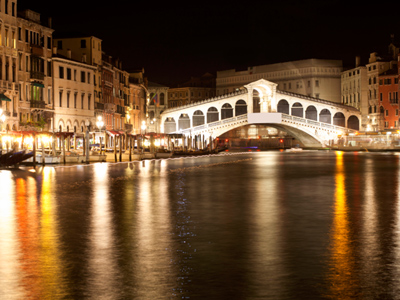
The Merchant of Venice - Setting
This GCSE English Literature quiz takes a look at setting in William Shakespeare's The Merchant of Venice. The setting of any fictional work includes its location and the time in which its events take place. In addition to the events explicitly depicted by a play, there will be events occurring in the background to which characters might allude. A key component of a work’s setting, this wider fictional world is known as context (although it is important, of course, not to confuse the author’s real-life context with the fictional context associated with setting). Another important element of setting is atmosphere. In a play, atmosphere is very much a product of staging. Some playwrights explicitly describe the atmosphere they wish to be created onstage. Interestingly, The Merchant of Venice includes very few stage directions of this type, allowing directors free rein in the development of atmosphere.
Spending some time considering the setting of any text you study is an important step in its analysis. Think about how the world in which the characters live affects the decisions which they make over the course of the plot. The effect of political or social events on characters can usually be seen in their behaviour and dialogue. The plot of The Merchant of Venice by Shakespeare depends entirely on its setting for the vital interaction between the Anti-Semitism of the Venetians and their attitude of pragmatic openness to other cultures for the purposes of trade.
Geographical setting can include country, region, or city; environment (perhaps this is urban or rural); the buildings or specific sites where events occur; and even the weather. Do all the events occur in the same place? Do characters travel, or arrive from elsewhere? How are different settings contrasted with one another? Are certain characters associated with one setting while other characters are associated with another? Such contrasts are important in The Merchant of Venice.
For some texts, it can also be useful to compare the time it is set with when it was written. Do these times differ? Why might an author choose to set a text in the same time, but in an exotic place? Does this change our understanding of the story?
Answer the questions below on setting in The Merchant of Venice by William Shakespeare.
Ready for more?
not all...
quizzers. Try to win a coveted spot on our Hall of Fame Page.







